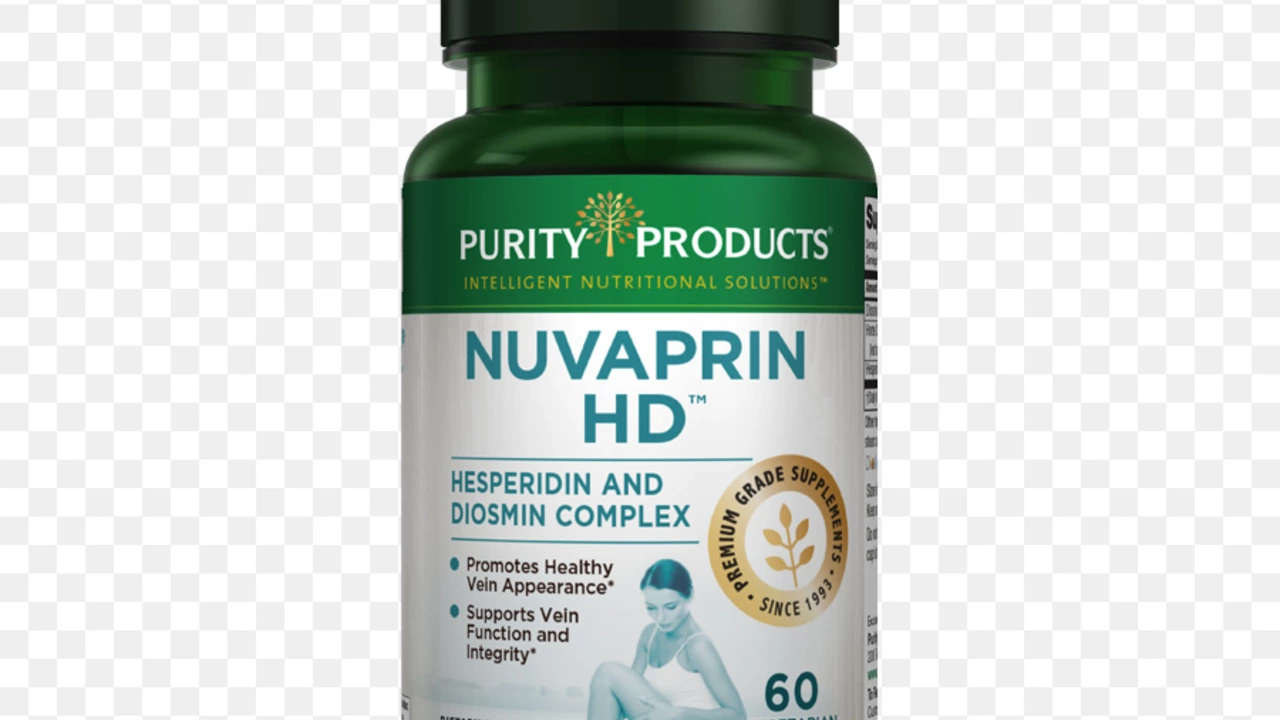In my recent findings, I've discovered Diosmin, a game-changing dietary supplement that significantly improves vein health and blood circulation. This miraculous substance can reduce inflammation and swelling, making it a potent solution for those who suffer from varicose veins. Not only that, but it also promotes better circulation, ensuring that your body receives the nutrients it needs. I was amazed at how Diosmin has transformed the lives of many by providing a natural alternative for vascular health. If you're looking to support your cardiovascular health, Diosmin might just be the supplement you're searching for!
Diosmin: Uses, Benefits, Dose, and Practical Tips
Diosmin is a flavonoid used to treat vein problems like chronic venous insufficiency, varicose veins, and hemorrhoids. You may find it as a single ingredient or mixed with hesperidin. People take diosmin to reduce swelling, pain, and heaviness in legs. It also helps capillaries work better and can lower bleeding during hemorrhoid flare-ups.
How does it work? Diosmin improves venous tone and supports microcirculation. That means blood moves through small vessels more smoothly and fluid buildup drops. The effect is gradual; most people notice better symptoms after a few weeks. For hemorrhoids, short courses during flare-ups can cut pain and bleeding.
Typical doses vary by product. Common regimens use 500 mg twice daily or a 1000 mg once daily formulation. Some prescriptions and medical studies test higher doses for limited periods. Always follow label directions or your doctor’s advice. If symptoms fail to improve after two months, ask your clinician for a check-up.
Side effects are usually mild. The most common ones are stomach upset, headache, and mild skin reactions. Serious reactions are rare, but stop taking diosmin and seek help if you get severe rash, swelling, or breathing trouble. People with liver disease or pregnant or breastfeeding should talk to their doctor before starting it.
Interactions with other drugs are not common, but check with your pharmacist if you take blood thinners, blood pressure medicines, or other supplements. Herbs that affect clotting might add risk when combined with diosmin. Keep a list of all medicines and show it to your healthcare provider.
When to take it? Many people take diosmin with food to lower stomach upset. Take it at the same time each day to form a habit. For flare-ups, start as soon as symptoms begin and follow the recommended short course.
Expect gradual change. For chronic vein problems it often takes four to twelve weeks to feel a clear benefit. Track results with photos, a symptom diary, or by measuring leg circumference. That helps your doctor see if the treatment is working.
Who should consider diosmin? People with aching, swollen, or heavy legs, frequent ankle swelling, or recurring hemorrhoids may benefit. It is not a cure for varicose veins, but it can ease symptoms and improve quality of life. Combine diosmin with compression socks, movement, and weight control for better results.
Choosing a supplement brand matters. Look for products with clear labeling, third-party testing, and proper dosing. Cheaper is not always better. Ask your pharmacist for a trusted option or check online reviews.
Final tips: start with a realistic plan, expect steady improvement, and call your doctor for any worrying signs. If you have surgery scheduled, mention diosmin to your surgeon as it may affect bleeding risk. Keep follow-ups and be patient.
For pregnant women, studies are limited, so avoid unless a doctor recommends it. For long-term use, review benefits every six months with your clinician and reassess lifestyle measures like exercise and leg elevation. Start smart, track progress, and ask questions at every visit. Stay informed daily.

